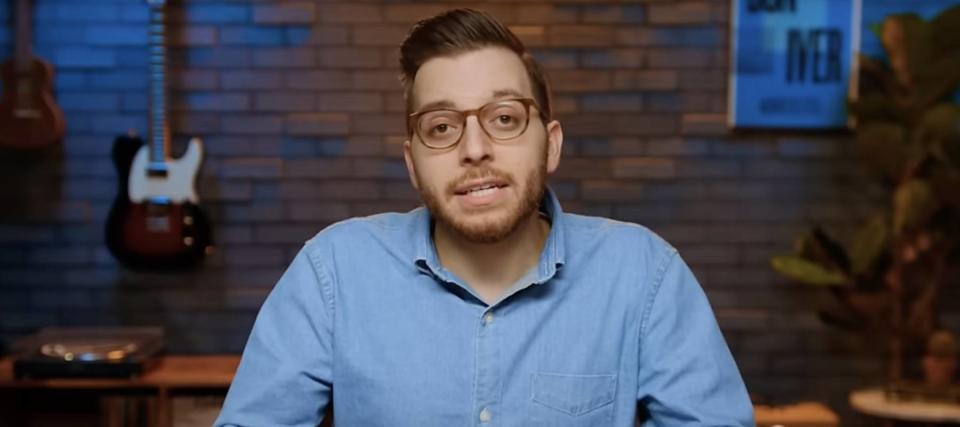'Ramsey Show' co-host says there’s a new way Americans are destroying their wealth and it costs $24 billion

Only 14% of Americans would consider themselves wealthy and the majority define "wealthy" as having $1 million or more, according to a survey by Edelman Financial Engines.
There are plenty of reasons people aren't able to build wealth, including stagnant wages, the rising cost of living, and hefty debt burdens with high interest rates. Most households probably understand the impact of credit card debt and auto loans on their financial health.
However, George Kamel, co-host of "The Ramsey Show," believes there’s a fancy new, tech-enabled "wealth killer": Buy-Now-Pay-Later (BNPL). In a recent video uploaded to his YouTube channel, he described how these innovative financial schemes are secretly trapping people in invisible debt.
Don't miss
'It's not taxed at all': Warren Buffett shares the 'best investment' you can make when battling rising costs — take advantage today
Car insurance rates have spiked in the US to a stunning $2,150/year — but you can be smarter than that. Here's how you can save yourself as much as $820 annually in minutes (it's 100% free)
Jeff Bezos told his siblings to invest $10K in his startup called Amazon, and now their stake is worth over $1B — 3 ways to get rich without having to gamble on risky public stocks
“They want to swoop in so that they can take your money,” he says.
Here’s why Kamel is lashing out against these fintech platforms.
Debt traps with sneaky marketing
As the name suggests, BNPL is a way for consumers to buy items without paying the price upfront. Instead, the payments are stretched out over multiple installments for several months or years.
Kamel believes that if you look closely, this "financial innovation" is just borrowing money with a unique marketing spin. “These short-term payment plans are a debt trap,” he says. “And companies just market it in a sneaky way so they can make even more money off you.”
He highlights the taglines of these BNPL platforms, like Affirm’s “Pay at your own pace" and Afterpay's "Shop now. Pay better."
Unfortunately, the marketing seems to be working. BNPL loan volume has exploded from $2 billion in 2019 to $24.2 billion in 2021, according to the Consumer Financial Protection Bureau (CFPB). Thirty percent of Americans are considering applying for a BNPL installment loan this month, according to the March 2024 LendingTree BNPL Tracker. PayPal is the most popular platform for this instrument and the average purchase amount of a BNPL loan is $132, according to Experian data cited in the LendingTree report.
Kamel believes the rise of these platforms is having a far-reaching impact across the economy.
Read more: Suze Orman says Americans are poorer than they think — but having a dream retirement is so much easier when you know these 3 simple money moves
Overconsumption and essentials
BNPL platforms, according to Kamel, are designed to mask the true cost of purchases and encourage overspending. “Even if you do make your payments on time perfectly, the bigger problem at play is that BNPL numbs you to the reality of how much you’re really spending,” he says. “Cause instead of feeling the sticker shock, these installment plans are just feeding your ‘I want it now’ mentality and hiding the true cost of what you're buying."
Beyond hidden debt and overconsumption, Kamel is concerned about the way BNPL services are being used for more than discretionary spending. Services like Flex allow users to split their monthly rent into weekly or biweekly installments.
Meanwhile, services like Walnut and PayZen allow users to finance their medical bills with similar payment plans. Deferit does the same for monthly utility bills.
“[BNPL] are not making purchases more affordable,” Kamel says. “They’re just betting against you and cashing in on your psychology.”
What to read next
Thanks to Jeff Bezos, you can now use $100 to cash in on prime real estate — without the headache of being a landlord. Here's how
Rich young Americans have lost confidence in the stock market — and are betting on these 3 assets instead. Get in now for strong long-term tailwinds
Boomer's remorse: Here are the top 5 'big money' purchases you'll (probably) regret in retirement and how to better prepare for them
This article provides information only and should not be construed as advice. It is provided without warranty of any kind.
